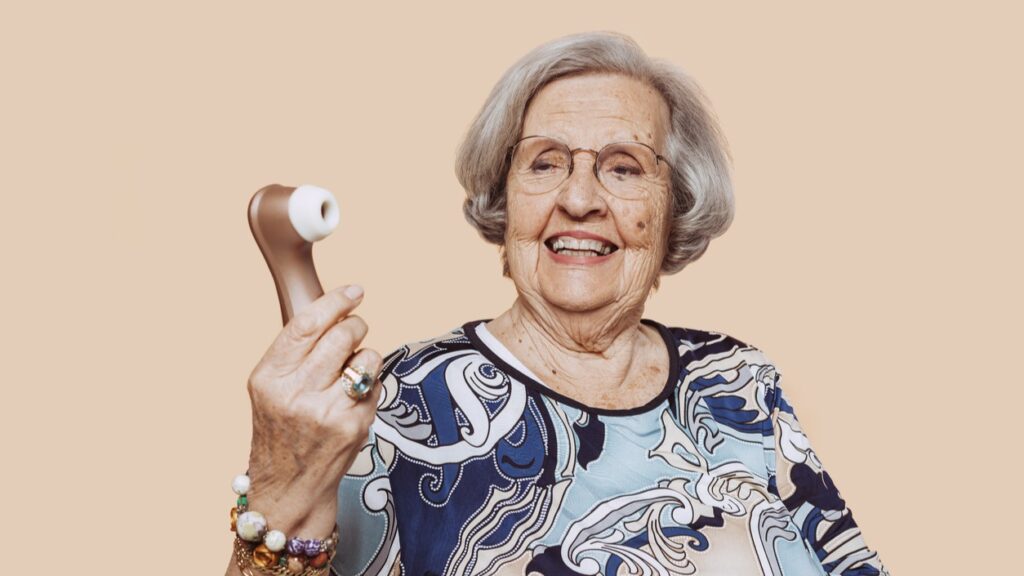Growing older doesn’t signal the end of passion.
Many seniors remain sexually active in their golden years, but what they consider “sex” may vary.
To explore this, a study published in the Journal of Sex Research examined the activities older adults count as sex and how varying definitions affect their sexual wellbeing. The findings emphasize the need for a more flexible approach to measuring sexual activity, which can impact healthcare and sex education practices.
A closer look at senior sexuality

To explore senior sexuality, researchers recruited 286 adults aged 60 or older.
Of them 51% identified as female and 49% as male. Most were Caucasian, heterosexual, and in long-term, committed relationships.
Participants received a list of 19 sexual activities and were asked which ones qualified as having “had sex.” They included vaginal intercourse, various forms of genital contact, hugging and cuddling, and deep kissing.
Along with demographic information, participants shared details on their recent sexual activity, sexual wellbeing, and overall health.
Researchers assessed sexual wellbeing by evaluating sexual difficulties, satisfaction, functioning, and distress. They also investigated whether definitions of sex were linked to gender, as well as the frequency of sexual activity and the directionality of behaviors.
Insights on sex after 60

Older adults hold diverse perspectives on what truly counts as sex after 60.
People who frequently engaged in an activity were more likely to view it as sex. However, this excluded hugging and cuddling, masturbation over the phone, and penetrative sex (vaginal or anal).
Overall, the study found no significant differences based on whether someone was the performer or recipient of a sexual activity.
What did seniors consider sex?
Penetrative acts

- Vaginal intercourse: viewed as sex by 93% of participants
- Brief or partial intercourse: 82%
- Anal intercourse: 63%
Genital contact
- Oral-genital contact: viewed as sex by 68% of performers and 71% of receivers
- Hand-to-genital contact: 63%
- Non-penetrative genital-to-genital contact: 51%
- Using sex aids, such as sex toys and vibrators: 49%
Simultaneous masturbation
- In each other’s presence: 36%
- Over the phone: 21%
- Over the computer: 21%
Non-genital touch
- Oral contact with breasts or nipples: viewed as sex by 24% of performers and 21% of receivers
- Manual touch to breasts or nipples: 20% of performers and 21% of receivers
- Hugging and cuddling: 12%
- Deep kissing: 11%
Sexual wellbeing
The researchers identified five main groups based on how older adults define sex.
The largest group (30%) considered both penetrative and non-penetrative genital activities as sex. Another 20% counted all acts involving genitals, including masturbation.
About 17% included all activities, even those not involving genitals, while 16% saw only penetrative acts as sex. The smallest group (11%) recognized affectionate behaviors, genital contact, and penetrative sex but not masturbation.
When comparing the groups, researchers found no differences related to gender or health status. Yet they did identify slight variations in sexual wellbeing.
To the authors’ surprise, participants who defined sex more narrowly (as only penetrative) had fewer sexual desire issues.
Participants who considered all sexual activities as sex (except masturbation) reported higher orgasm satisfaction and overall sexual satisfaction. Specifically, this group fared better than those who only recognized penetrative or genital activities as sex.
This suggests that sexual wellbeing might be linked to being more open to different activities than to having flexible definitions of what counts as sex.
Rethinking sex after 60

In the eyes of older adults, sex isn’t just penetrative—it’s a spectrum of intimate activities.
Still, participants were most likely to view penetrative acts as sex. This was followed by genital contact without penetration, masturbation, and non-genital contact such as kissing or cuddling.
These diverse views matter for improving healthcare and research on older adults. Since some may not see penetration as necessary for an intimate activity to be considered sex, assessing sexual function shouldn’t rely solely on it.
In addition, more research is needed to uncover why older adults differ in what they consider sex. To accurately capture these nuances, scientists must refine their methods for measuring sexual activity. The authors also encourage deeper study into online partnered sex among this group.
Senior sexuality defies simple labels—let’s keep exploring it!
Image sources: iStock



